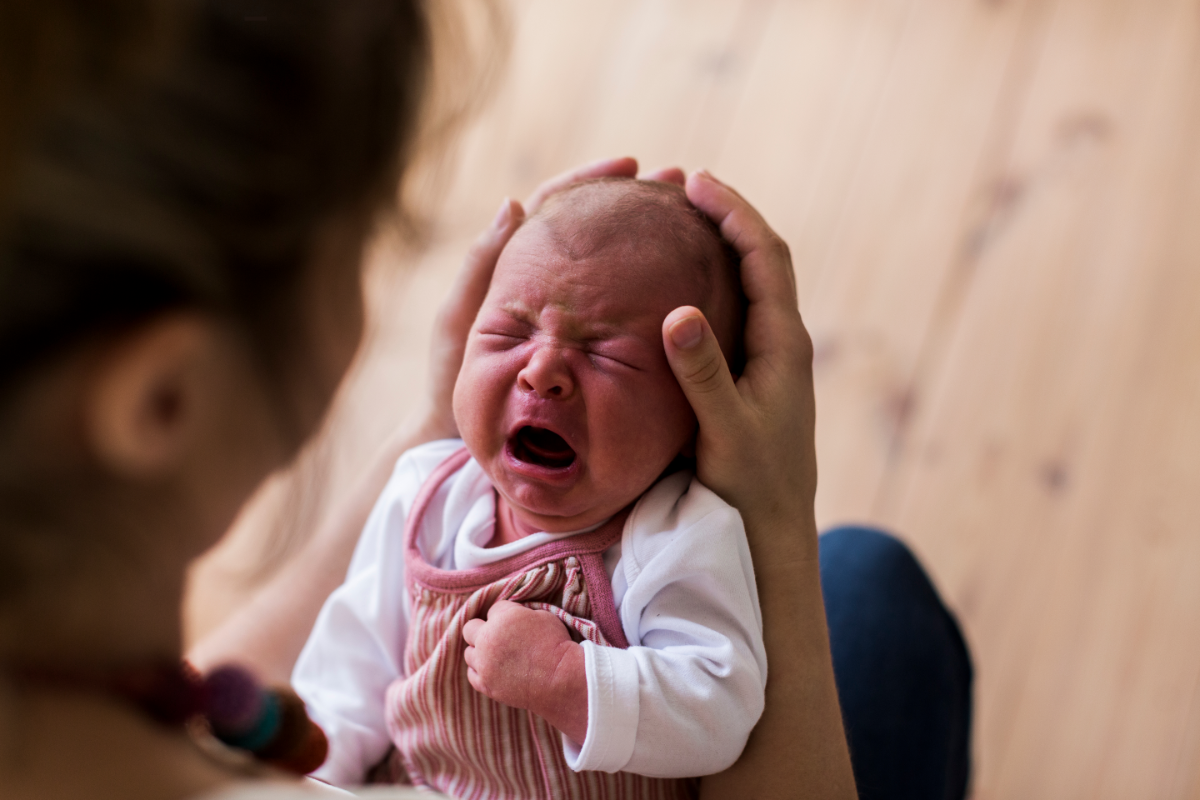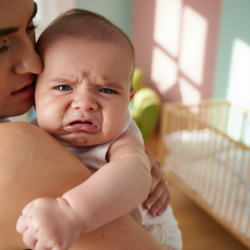Gastro-oesophageal reflux disease ( GERD) in babies is a common digestive disorder in the first few months of life. It manifests itself as the reflux of stomach contents into the oesophagus, with or without regurgitation. Although it is often benign, it can nevertheless cause real discomfort. Knowing more about the symptoms of GERD, its causes and solutions can help your baby to quickly regain better digestive comfort.
Why do so many babies suffer from GERD?
GERD in babies is mainly due to the immaturity of the lower oesophageal sphincter, which is still unable to hold back milk effectively in the stomach. This natural weakness explains why there is frequent reflux, especially after meals.
A number of aggravating factors can contribute to baby GERD:
- an exclusively liquid diet;
- taking in too much milk or too quickly;
- lying down for long periods after meals;
- sensitivity to certain milks or foods, particularly during diversification.
Simple GERD, internal GERD or complicated GERD?
All babies regurgitate at one time or another. However, it is important to distinguish between the different forms of reflux:
- Simple GERD: baby regurgitates after meals, but remains smiley, eats well and grows normally. No treatment is required.
- Internal GERD: there is no visible regurgitation, but the child seems embarrassed, cries often and sometimes refuses to eat. It is more difficult to detect.
- Complicated GERD: it becomes worrying when it causes pain, weight loss, inflammation of the oesophagus(oesophagitis) or breathing problems.
Signs to look out for in a baby with GERD
Here are the most common symptoms of baby GERD, whether internal or visible:
- Frequent crying, especially after meals or in the middle of the night;
- Shortened feedings or refusal of the breast/bottle;
- Cries or grimaces during feeding;
- Dry cough, hiccups, throat clearing;
- Restlessness, waking up at night, difficulty sleeping;
- Sometimes an acid smell in the mouth or tainted regurgitation.
If these signs occur regularly or intensify, it is advisable to consult a paediatrician.
GERD in babies: what is the diagnosis and when should you consult a doctor?
In the majority of cases, the diagnosis is clinical. The paediatrician relies on the symptoms. However, if there is any doubt or if the signs are more severe, the paediatrician may recommend :
- a pHmeter to measure the acidity of the oesophagus ;
- a fibroscopy to observe any inflammation (oesophagitis).
How can you help a baby with GERD?
There are a few simple things you can do to make daily life a lot easier:
- keep baby upright for 20 to 30 minutes after feeding;
- slightly recline the mattress (no pillows under the head);
- divide up meals to avoid overloading and use slow-flow teats to avoid feeding too quickly;
- if bottle-feeding is used, discuss the choice of thickened anti-regurgitation or hypoallergenic milk with your paediatrician;
- in addition, some professionals recommend probiotics or natural solutions.
Conclusion
GERD in babies is very common, and in most cases it subsides over time, generally between 12 and 18 months. By adopting the right reflexes and keeping an eye out for signs of discomfort, parents can provide effective relief for their baby. A number of natural solutions are available to deal with many of baby’s minor discomforts. However, if the symptoms persist or worsen, a medical consultation is required to adapt the treatment to each situation.





